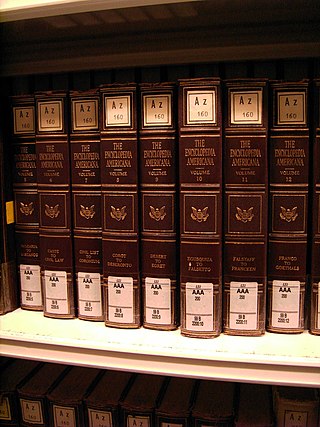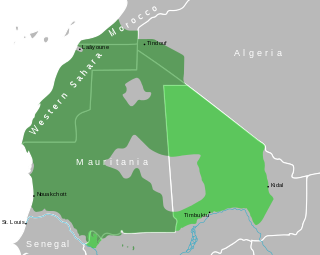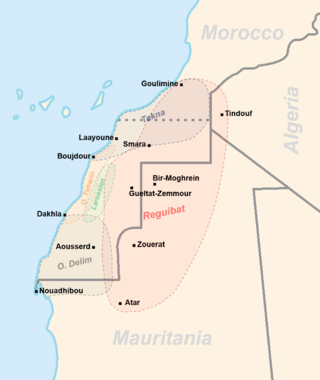Related Research Articles

The Berber languages, also known as the Amazigh languages or Tamazight, are a branch of the Afroasiatic language family. They comprise a group of closely related but mostly mutually unintelligible languages spoken by Berber communities, who are indigenous to North Africa. The languages are primarily spoken and not typically written. Historically, they have been written with the ancient Libyco-Berber script, which now exists in the form of Tifinagh. Today, they may also be written in the Berber Latin alphabet or the Arabic script, with Latin being the most pervasive.

The term Moor is an exonym first used by Christian Europeans to designate the Muslim populations of the Maghreb, al-Andalus, Sicily and Malta during the Middle Ages. Moors are not a single, distinct or self-defined people. The 1911 Encyclopædia Britannica observed that the term had "no real ethnological value." Europeans of the Middle Ages and the early modern period variously applied the name to Arabs, Berbers, and Muslim Europeans.

Berbers or the Berber peoples, also called by their contemporary self-name Amazigh or Imazighen, are a diverse grouping of distinct ethnic groups indigenous to North Africa who predate the arrival of Arabs in the Arab migrations to the Maghreb. Their main connections are identified by their usage of Berber languages, most of them mutually unintelligible, which are part of the Afroasiatic language family. They are indigenous to the Maghreb region of North Africa, where they live in scattered communities across parts of Morocco, Algeria, Libya, and to a lesser extent Tunisia, Mauritania, northern Mali and northern Niger. Smaller Berber communities are also found in Burkina Faso and Egypt's Siwa Oasis.

The Tuareg people are a large Berber ethnic group that principally inhabit the Sahara in a vast area stretching from far southwestern Libya to southern Algeria, Niger, Mali, and Burkina Faso. Traditionally nomadic pastoralists, small groups of Tuareg are also found in northern Nigeria.

The Tuareg languages constitute a group of closely related Berber languages and dialects. They are spoken by the Tuareg Berbers in large parts of Mali, Niger, Algeria, Libya and Burkina Faso, with a few speakers, the Kinnin, in Chad.

Encyclopedia Americana is a general encyclopedia written in American English. It was the first major multivolume encyclopedia that was published in the United States. With Collier's Encyclopedia and Encyclopædia Britannica, Encyclopedia Americana became one of the three major English-language general encyclopedias; the three were sometimes collectively called "the ABCs". Following the acquisition of Grolier in 2000, the encyclopedia has been produced by Scholastic.

The Maghreb, also known as the Arab Maghreb and Northwest Africa, is the western part of the Arab world. The region comprises western and central North Africa, including Algeria, Libya, Mauritania, Morocco, and Tunisia. The Maghreb also includes the disputed territory of Western Sahara and the Spanish cities Ceuta and Melilla. As of 2018, the region had a population of over 100 million people.

Beni Ḥassan was a Bedouin Arab tribe which inhabited Western Sahara, Mauritania, Morocco and Algeria. It was one of the four sub-tribes of the Beni Maqil who emigrated in the 11th century from South Arabia to the Maghreb with the Bani Hilal and Banu Sulaym Arab tribes. In the 13th century, they occupied the Sanhaja territories in the southwest of the Sahara. In Morocco, they first settled, alongside their Maqil relatives, in the area between Tadla and the Moulouya River. The Sous Almohad governor called upon them for help against a rebellion in the Sous, and they resettled in and around that region. They later moved to Mauritania, and from the 16th century onwards, they managed to push back all black Mauritanians southwards to the Senegal Valley river. The Beni Hassan and other warrior Arab tribes dominated the Sanhaja Berber tribes of the area after the Char Bouba war of the 17th century. As a result, Arabian culture and language came to dominate, and the Berber tribes underwent Arabisation. The Bani Hassan dialect of Arabic became used in the region and is still spoken, in the form of Hassaniya Arabic. The hierarchy established by the Beni Hassan tribe gave Mauritania much of its sociological character. That ideology has led to oppression, discrimination and even enslavement of other groups in Mauritania.

The Sahrawis, or Sahrawi people, are an ethnic group and nation native to the western part of the Sahara desert, which includes the Western Sahara, southern Morocco, much of Mauritania, and along the southwestern border of Algeria. They are of mixed Hassani Arab and Sanhaji Berber descent, as well as Sub-Saharan African and other indigenous populations.

Berberism is a Berber political-cultural movement of ethnic nationalism, started mainly in Kabylia (Algeria) and in Morocco later spreading to the rest of the Berber communities in the Maghreb region of North Africa. The Berberist movement in Algeria and Morocco is in opposition to cultural Arabization, the pan-Arabist political ideology and Islamism.
The Bafour or Bafur are a group of people inhabiting Mauritania and Western Sahara. Their origins most likely ultimately lie in the Mandé peoples, only to later be absorbed by groups such as the Wolof, Serer, Fulani, or Tuareg. Scholars such as H.T. Norris describe "Bafur (Bafour)" as a loose term to encompass the pre-Sanhaja peoples, who were "part Berber, part Negro, and part Semite." And others describe them as Mandé agriculturalists who inhabited the area prior to the arrival of the Berbers. Others say they occupied these territories in the 15th century and, before the end of the 17th century, and were comprised by various groups, including the Wolof, Berber and Fula.

The Haratin, also spelled Haratine or Harratin, are an ethnic group found in western Sahel and southwestern Maghreb. The Haratin are mostly found in modern Mauritania, Morocco, Western Sahara, and Algeria. In Tunisia and Libya, they are referred to as Shwashin.

Jews of the Bilad al-Sudan describes West African Jewish communities connected to known Jewish communities who migrated to West Africa as merchants for trading opportunities. Various historical records state that at one time, they were present in the Ghana Empire, the Mali Empire, the Mossi Kingdoms and the Songhai Empire, which was then called the Bilad al-Sudan "Land of the Blacks".

The culture of North Africa encompasses the customs and traditions of art, architecture, music, literature, lifestyle, philosophy, food, politics and religion that have been practiced and maintained by the numerous ethnic groups of North Africa. North Africa encompasses the northern portion of Africa, including a large portion of the Sahara Desert. The region's commonly defined boundaries include Algeria, Egypt, Libya, Morocco, Tunisia, and Western Sahara, stretching from the Atlantic shores of the Western Sahara in the west, to Egypt's Red Sea coast in the east. The United Nations' definition additionally includes Sudan in the region. The inhabitants of North Africa are roughly divided in a manner corresponding to the principal geographic regions of North Africa: the Maghreb, the Nile valley, and the Sahel.
Caste systems in Africa are a form of social stratification found in numerous ethnic groups, found in over fifteen countries, particularly in the Sahel, West Africa, and North Africa. These caste systems feature endogamy, hierarchical status, inherited occupation, membership by birth, pollution concepts and restraints on commensality.

Greater Mauritania is a term for the Mauritanian irredentist claim that generally includes the Western Sahara and other Sahrawi-populated areas of the western Sahara Desert. The term was initially used by Mauritania's first President, Mokhtar Ould Daddah, as he began claiming the territory then known as Spanish Sahara even before Mauritanian independence in 1960.

Tishoumaren or assouf, internationally known as desert blues, is a style of music from the Sahara region of northern and west Africa. Critics describe the music as a fusion of blues and rock music with Tuareg, Malian or North African music. Various other terms are used to describe it including desert rock, Saharan rock, Takamba, Mali blues, Tuareg rock or simply "guitar music". The style has been pioneered by Tuareg musicians in the Sahara region, particularly in Mali, Niger, Libya, Western Sahara, Algeria, Burkina Faso and others.

Mauritania, officially the Islamic Republic of Mauritania, is a sovereign country in Northwest Africa. It is bordered by the Atlantic Ocean to the west, Western Sahara to the north and northwest, Algeria to the northeast, Mali to the east and southeast, and Senegal to the southwest. By land area, Mauritania is the 11th-largest country in Africa and the 28th-largest in the world, and 90% of its territory is situated in the Sahara. Most of its population of 4.4 million lives in the temperate south of the country, with roughly one-third concentrated in the capital and largest city, Nouakchott, located on the Atlantic coast.
The Ikelan are a caste within Tuareg society, who were at one time slaves or servile communities.

The languages of Mauritania mainly consist of various Afroasiatic languages, including: Zenaga-Berber, Tamasheq-Berber, Hassaaniya Arabic and Standard written Arabic. French is also used due to colonial influence. Some ethnic minorities speak Niger-Congo languages.
References
- ↑ Scholastic Library Publishing (2005). Lands and Peoples: Africa. Grolier. p. 135. ISBN 0717280241 . Retrieved 17 August 2016.; Moors 80% of population of 3,460,000
- ↑ Joshua Project. "Tuareg, Tamasheq in Mauritania".
- ↑ Scholastic Library Publishing (2005). Lands and Peoples: Africa. Grolier. p. 135. ISBN 0717280241 . Retrieved 17 August 2016.; Moors 80% of population of 3,460,000
- ↑ Joshua Project. "Tuareg, Tamasheq in Mauritania".